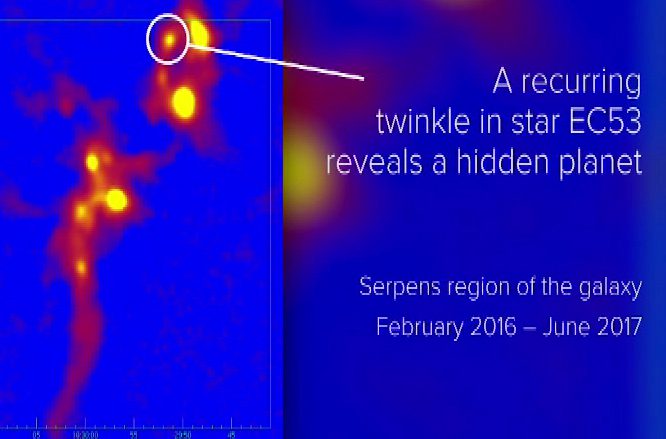
WATCH: A team of researchers have noticed a twinkle in a new star that is reoccurring every 18-months. They believe it’s caused by a hidden planet. Isabelle Raghem reports.
A study led by an astronomer in Saanich may debunk existing theories about how stars and planets are made.
Astronomers Doug Johnstone in Saanich and Greg Herczeg in China, who are being supported by other astronomers, found a twinkle in a new star reoccurring every 18-months.
The cause of the periodic spark is what they believe to be a hidden, very young planet.
“We know it’s periodic, we can watch the periods. That suggests that something physical is on the disc, like a planet” said Johnstone, the senior research officer at the National Research Council’s Herzberg Astronomy and Astrophysics Research Centre.
They believe a companion planet is orbiting the star and it’s passing gravitational pull disrupts the rate of the gas falling onto the forming star. It provides a variation in the observed brightness and spark of the star.
The finding was viewed thanks to images captured by the James Clerk Maxwell Telescope located in Hawaii.
“This is a very young star,” said Johnstone, “A star that’s still in its birth. If there’s a planet-forming now, this suggests the planetary process can happen much earlier than we imagined.”
?This discovery marks a turning point; in a sense, it?s like sub-millimetre astronomy is moving from taking pictures of our galaxy to taking videos,? says Greg Herczeg. ?The last 25 years have been devoted to perfecting observing techniques and instruments to allow us to see early star formation. But with recent advances in technology, we can now observe regions changing over time, for a deeper understanding of how stars form. This discovery is just one example of how much more we can now learn.?
While they’ll have to keep watching the twinkle to confirm the cause, Johnstone says the possibilities are exciting.
“It’s that notion that hey, maybe this is even connected to planets and of course, nowadays, we think life, which is kind of cool.”
The findings could give astronomers a better idea of the origins of planets.





